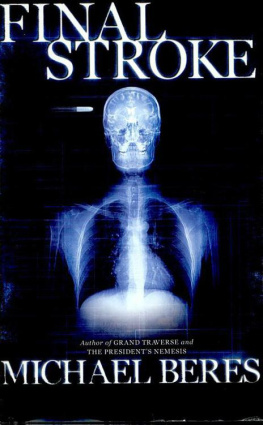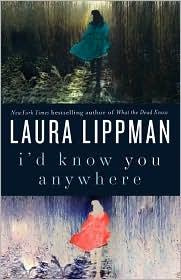The Narrative Practitioner
Practice Theory in Context series
Series Editor: Jan Fook
Change is rife in welfare organisations but expectations for sound and effective practice continue to rise. More than ever, professionals need to be able to remake ideas and principles for relevance in a range of different circumstances as well as transfer learning from one context to the next.
This new series focuses on approaches to practice that are common and prevalent in health and social care settings. Each book succinctly explains the theoretical principles of its approach and shows exactly how these ideas can be applied skilfully in the pressurised world of day-to-day practice.
Pitched at a level suitable for students on introductory courses, the books are holistic in ethos, also considering organisational and policy contexts, working with colleagues, ethics and values, self-care and professional development. As such, these texts are ideal too as theory refreshers for early and later career practitioners.
Published
Laura Beres
The Narrative Practitioner
Fiona Gardner
Being Critically Reflective

Laura Bres 2014
All rights reserved. No reproduction, copy or transmission of this publication may be made without written permission.
No portion of this publication may be reproduced, copied or transmitted save with written permission or in accordance with the provisions of the Copyright, Designs and Patents Act 1988, or under the terms of any licence permitting limited copying issued by the Copyright Licensing Agency, Saffron House, 610 Kirby Street, London EC1N 8TS.
Any person who does any unauthorized act in relation to this publication may be liable to criminal prosecution and civil claims for damages.
The author has asserted her right to be identified as the author of this work in accordance with the Copyright, Designs and Patents Act 1988.
First published 2014 by
PALGRAVE MACMILLAN
Palgrave Macmillan in the UK is an imprint of Macmillan Publishers Limited, registered in England, company number 785998, of Houndmills, Basingstoke, Hampshire RG21 6XS.
Palgrave Macmillan in the US is a division of St Martins Press LLC, 175 Fifth Avenue, New York, NY 10010.
Palgrave Macmillan is the global academic imprint of the above companies and has companies and representatives throughout the world.
Palgrave and Macmillan are registered trademarks in the United States, the United Kingdom, Europe and other countries
ISBN: 9781137005472
This book is printed on paper suitable for recycling and made from fully managed and sustained forest sources. Logging, pulping and manufacturing processes are expected to conform to the environmental regulations of the country of origin.
A catalogue record for this book is available from the British Library.
A catalog record for this book is available from the Library of Congress.
Typeset by Cambrian Typesetters, Camberley, Surrey
Printed in China
Contents
Part I
The Narrative Approach
Part II
The Narrative Approach in Context
List of Figures
Preface
What this book is, and is not
Narrative practices attempt to move away from totalizing descriptions of people, so I acknowledge that there is a risk of being inconsistent and totalizing myself if I describe myself as a narrative practitioner and a social worker. There is more to me than these two aspects, and yet they influence everything I do. It is also due to the fact that I am both a narrative practitioner and a social worker that Jan Fook asked me if I would be interested in writing a book for this series she is editing regarding theories in practice. She told me that she was looking for something other than a typical textbook; she was hoping that the series could be made up of books in which social work practitioners of particular approaches would write more personally about their experiences of actually putting theory into practice. Even text-books that incorporate case examples and attempt to make the link between theory and practice do not always reflect on the challenges of continuing to practise within a particular framework once a person is working in an agency or organizational setting. Theories, as they are explained in text-books, can run the risk of seeming too straightforward or too pure in their descriptions to inspire belief in their practicality once a student has graduated and is in what might be called the real world. Therefore, at Jans prompting, what I have attempted in this book is to describe what I have found to be the most inspiring and useful aspects of narrative practice, to reflect on the challenges I have experienced and witnessed in students as they have begun the process of learning narrative skills for ongoing practice, and to fill in some gaps in the literature in terms of how narrative therapy might address issues of agency-based practice, research, spirituality and even self-care.
Potentially unsettling new areas
There are certain discourses that are called on by the terms agency-based practice, research, spirituality and self-care that might be offputting for some practitioners who are already committed to the politics and philosophical underpinnings of narrative therapy. When I was first learning and incorporating narrative ways of working into my practice, I might also have been quite concerned by what I am now attempting to do in this book. Although there are ways of taking up all these topics that could reinforce traditional, mainstream ways of thinking about practice and the structure of society, I have attempted to consider these topics within the framework of the philosophy and politics of narrative therapy in order to think through how narrative practitioners may be able to deal with these issues that their colleagues raise quite regularly. I think the fact that I am attempting to deal with these topics might be a relief for some narrative practitioners and might frustrate others.
The Dulwich Centre has recently announced that it has developed a partnership with the Department of Social Work at the University of Melbourne in Australia and will be offering a joint Master of Narrative Therapy and Community Work degree commencing in March 2014 (, regarding inquiry and critical reflection of practice.
I received my training in narrative practice from Michael White (2006, 2007b), Shona Russell and others (2006) in Australia through programmes offered by the Dulwich Centre and from both Michael White (1995b, 2005) and David Epston (2009, 2012) in workshops they have facilitated in Canada and the United States. I have also had the privilege of learning from Michael White by working alongside him in a community practice project in south-western Ontario (www.neighbouringcommunities.net). Although some trainers of narrative therapy and some students when they are first learning the practice skills may be concerned about doing it right as if it were a static set of skills that can be learnt and honed and polished to perfection, what has been inspiring to me about both Michael White and David Epston has been what I have interpreted as their love of learning and their commitment to not being hemmed in by expectations of theories. In learning narrative practice skills, there is the risk of wanting to model ourselves on White and Epston as the originators of narrative therapy, which can mean trying to duplicate what we have seen them do and then inadvertently reifying the practice as they first developed it. If we truly are to model ourselves on them, this would also mean voraciously reading a wide range of literature from a broad range of disciplines and constantly reflecting on how we might further improve our practice, responding always to changing social pressures and new learning. I have heard White use Geertzs term copying that originates (White, 2006) at the end of training conferences to encourage trainees not to worry about trying to be exactly the same as the trainers of narrative practice. He would encourage us to accept the fact that even if we attempted to copy, we would in fact be developing our own original ways of practising. I have presented in this book some of the basic conversation maps that White developed and have at the same time taken seriously his encouragement to originate ideas as well, moving into areas that narrative therapists and trainers have not previously explored.











